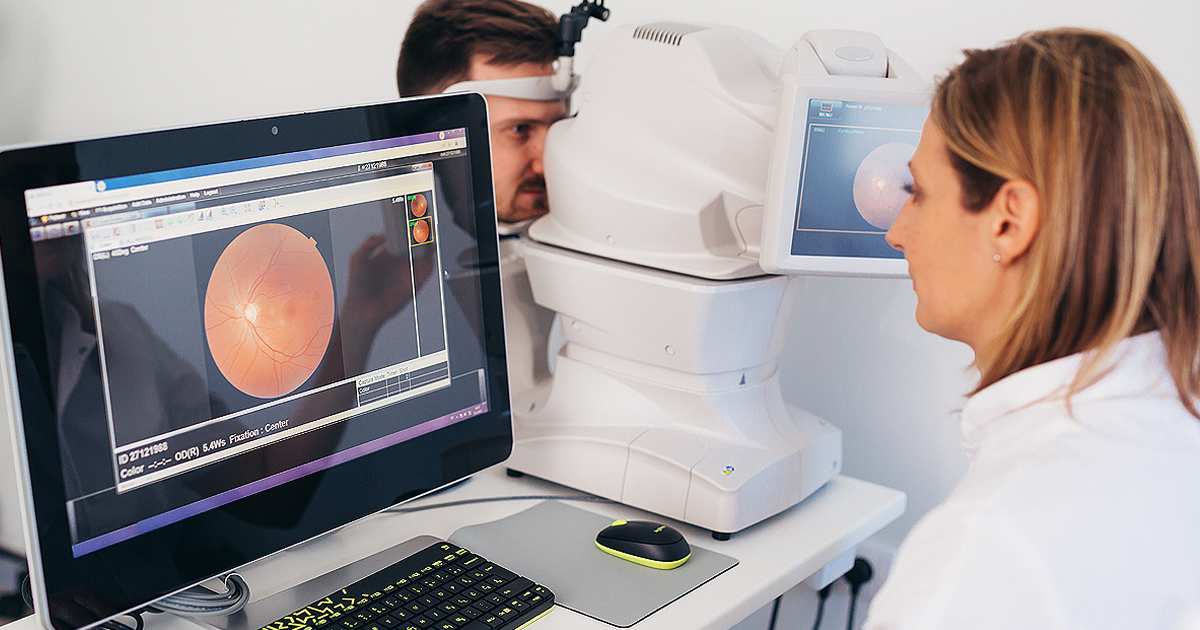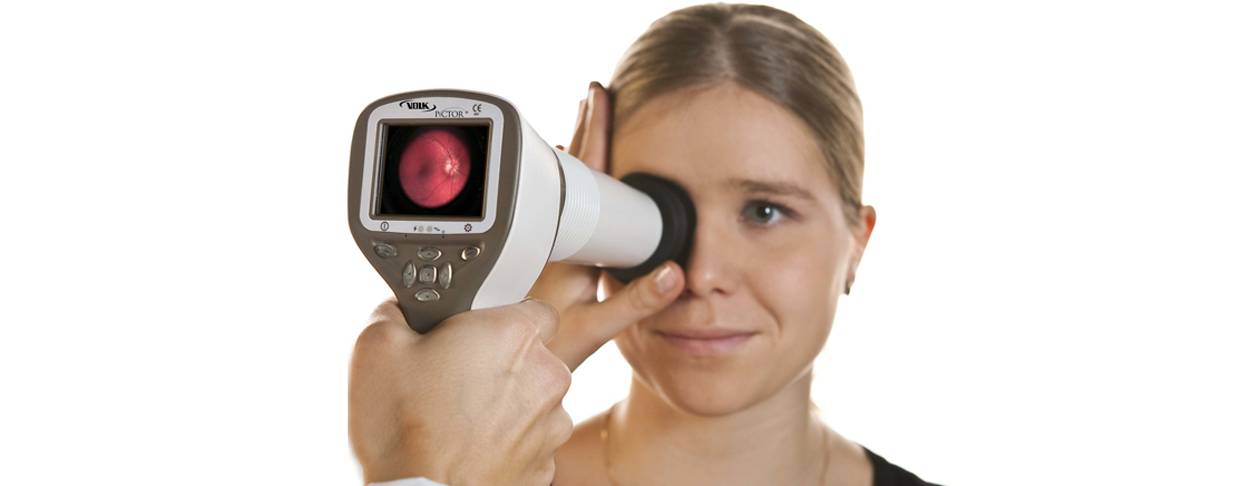Our Medical Directors, Dr. Lahr and Dr. Neighbors, answer questions about how diabetes affects our eyes and why additional vision care is often required.
What is diabetes and how does it affect our eyes?
Diabetes is a health condition that affects how your body turns food into energy. Your body breaks down food into sugar (glucose) and releases it into your bloodstream. When your blood sugar rises, your pancreas releases insulin, helping your body’s cells use the sugar as energy.
With diabetes, your body either doesn’t produce enough insulin or can’t use it properly. This causes too much sugar to stay in your bloodstream. Over time, this can lead to serious health issues such as heart disease, kidney disease, and even vision loss.
Think of high blood sugar as thick, sugary syrup moving slowly through your blood vessels. This can cause leaks, damaging cells that can potentially die. Eye doctors look for these leaks in the retina (the light-sensitive tissue inside the eye), which can lead to permanent vision loss.
Eye exams are a simple, non-invasive way to detect early signs of diabetes and monitor diabetic retinopathy before it threatens vision. If there’s bleeding in the eyes, there could also be bleeding in the heart, kidneys, and brain, causing widespread damage. Regular eye exams are crucial for early detection and prevention. EyeMed’s Diabetic Eye Care Benefits make this possible.
What’s included with EyeMed’s Diabetic Eye Care Benefits?
• An office visit once every 6 months
• Diagnostic tests, such as gonioscopy, extended ophthalmoscopy, fundus photography examination and scanning laser (offered at the provider’s discretion)
• Timely care reminders
Why are these additional eye exams so important?
To detect bleeding and other changes in their eyes, we need to see diabetic patients more than just once a year and run tests not traditionally done during a routine exam. EyeMed’s Diabetic Eye Care Benefit covers these additional exams and tests, making it easier for patients by not requiring them to go through their medical insurance. This removes barriers to care and eliminates the hassle of forms and claim submissions.
Shouldn’t the patient’s medical insurance pick this up?
Medical insurance would cover the diabetic office visit and testing but only if the patient has met their deductible. However, for those patients who have not met their deductible, EyeMed’s Diabetic Eye Care Benefit ensures they don’t worry about additional financial burdens.
To learn more, speak with your EyeMed representative or visit eyemed.com




